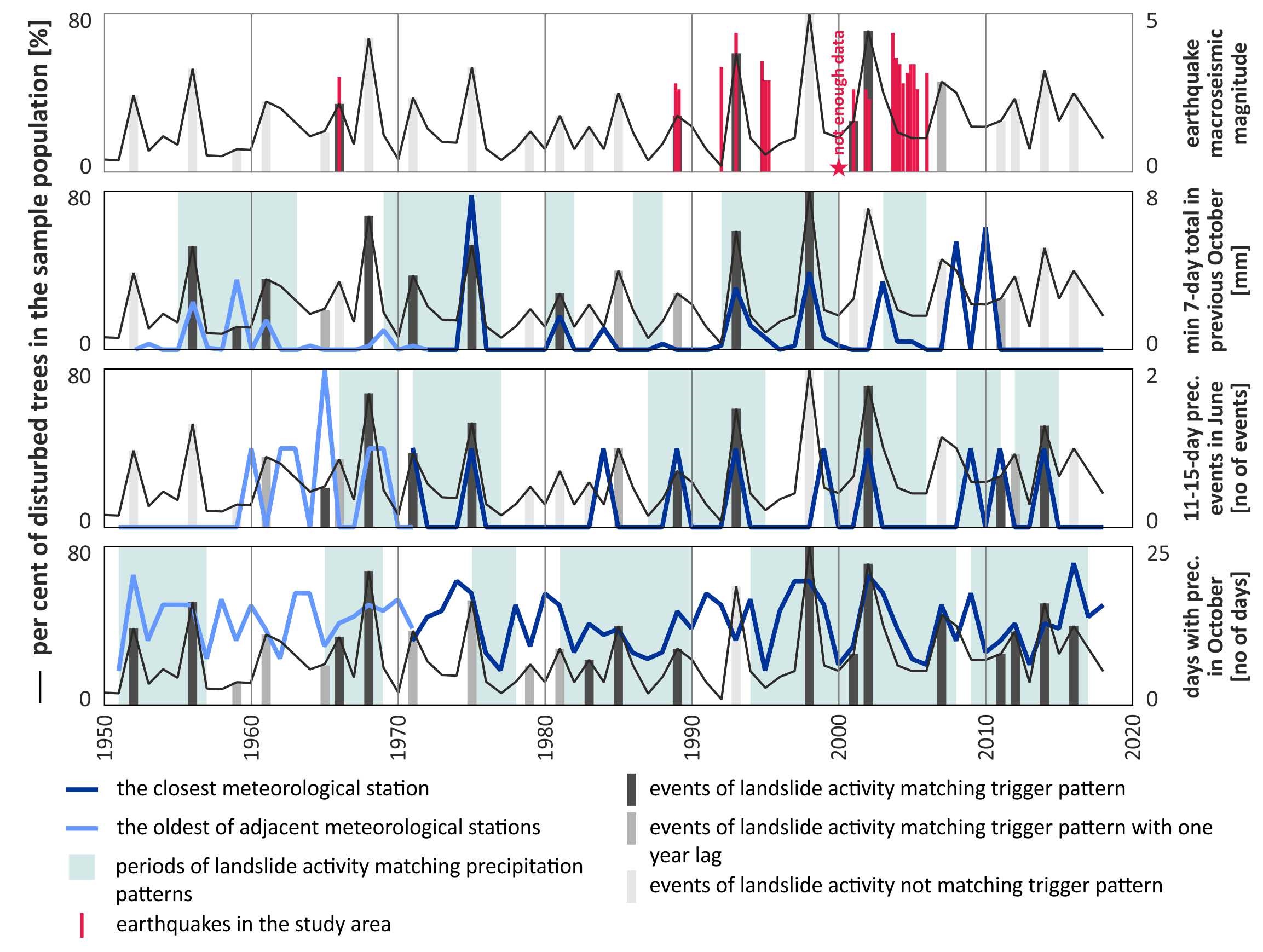The team, including Małgorzata Wistuba, Ireneusz Malik, Elżbieta Gorczyca (UJ) and Albert Ślęzak published a paper in the Catena journal presenting results on the relationship of landslide activity in the Podhale region with precipitation and earthquakes during the last 70 years. Dendrochronological analysis allowed to determine optimal sequences of meteorological factors causing landslide activity on three study slopes. Results indicate that, among all, preparatory precipitation of preceding winter half-year plays a crucial role in the activity of landslides in the Podhale region. Results also prove that long-term regularities in the reaction of landslides to triggering factors can be summarized as “landslide regime”, similarly to river regimes in hydrology:
Wistuba M., Malik I., Gorczyca E., Ślęzak A., 2021. Establishing regimes of landslide activity – Analysis of landslide triggers over the previous seven decades (Western Carpathians, Poland). Catena 196, 104888. https://doi.org/10.1016/j.catena.2020.104888
Research was conducted in the NCN Sonata project (2017/26/D/ST10/00792) “The importance of precipitation, earthquakes and erosion as triggering factors of landsliding – determining landslide activity regime”.

Comparison between the activity of one of the study landslides and selected triggering factors in 1951-2018.





